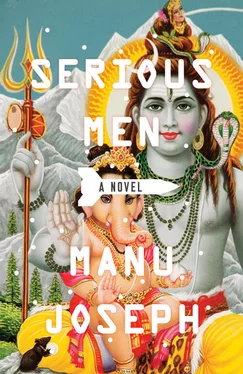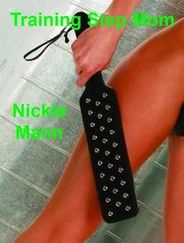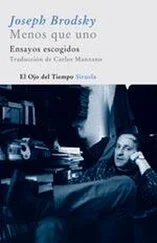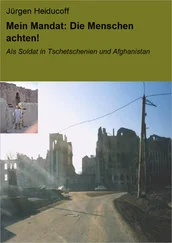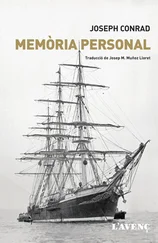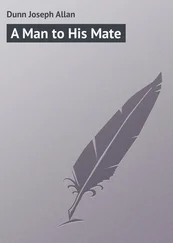‘You should wear that coat you have,’ she said. ‘You look like a hero in it.’
‘No, no. You are not supposed to wear a coat for something like this. You are supposed to look like you don’t care much.’
‘Adi,’ Oja screamed, ‘finish your bath.’
Adi was in the stained-glass enclosure in the corner of the kitchen. And he was singing aloud, ‘D-I-S-C-O. Disco, Disco.’
‘Adi, get out now.’
The boy emerged in a towel. Oja went hastily into the enclosure, giving him a foul look. ‘Disco, disco,’ Adi told her.
Ayyan dried him, glancing at the stained-glass bathroom he had once built with love. The boy showed the hearing-aid to his father. Ayyan helped him put it on. He bound the small white box around Adi’s stomach. A white wire ran out of the box. He blew into the boy’s left ear to dry it. Adi giggled. So Ayyan did it again. Then he fitted the earpiece into Adi’s ear.
When Oja stepped out of the enclosure, she looked at them for approval. This is a very beautiful young woman, Ayyan thought. He pouted his lips at her in a raunchy code. She smiled. She didn’t mind dirty thoughts because she didn’t have to do much beneath them. She went to the full-length mirror of the cupboard. Ayyan and Adi watched her closely as she bulged her eyes and drew around them with a black pencil.
They had an argument in the taxi. Oja had wanted to take the bus or walk. Ayyan wanted to take the taxi.
‘It’s going to rain,’ he told her.
Adi was squeezed in the back seat between his parents.
‘It does not rain inside the bus,’ she said angrily.
‘And from the bus-stop to the school?’
‘We have umbrellas, don’t we? And anyway, I don’t think it’s going to rain.’
‘It’s just twenty rupees.’
‘Little grains make a fat man’s meal,’ Oja and Adi said together, and that made them laugh.
By the time the taxi approached the gates, Oja had fallen silent. She was nervous. The left side of the lane was completely taken up by parked cars. And there was a commotion near the gates. Drivers who couldn’t find a parking space were trying to turn around, and that was causing a jam. The guard looked at Oja, breast to toe, and beamed at Ayyan.
‘All the rich folks have come,’ the guard said.
‘I have to go to the class,’ Adi said, extricating his finger from his father’s fist. ‘Parents have to go to the hall. Students will come in a line,’ he said. Then he gave quick instructions. ‘Parents don’t have to walk in a line. They can walk anyway they want.’ He pointed to the main block to his right. ‘The main auditorium is here. Don’t call it “hall”. It is called “The Main Auditorium”.’
He walked briskly down the front path towards the stairway. After a few paces he turned and gave a knowing smile to his father. Oja waved at him, and for a moment tried to decipher what the stealthy smile between father and son was about. She went quietly with Ayyan towards the main block. Two little girls in blue pinafores, much younger than Adi, were walking in front of them and talking animatedly in English. Oja laughed. ‘So fast they speak in English,’ she said.
Outside the auditorium’s rear entrance, parents chatted above the din of the festive murmurs coming from inside. They directed occasional glances towards the students who were arriving in orderly lines and vanishing through the front door.
‘Should we go in now or later?’ Oja whispered to her husband.
‘Why are you whispering?’
‘I am not whispering,’ she whispered.
They were standing a few feet away from a group of parents, about a dozen of them, who were talking about the horse-riding classes in a new international board school that had sprung up in the suburbs. The mothers were in T-shirt and jeans, and trousers that reached just below their knees, and long skirts. Some were in salwars. All of them — they looked so expensive. Oja inched closer to her husband.
Ayyan studied the fathers. His own shirt, he knew, was good. It had cost him five hundred rupees, but there was something about the shirts of these men and their trousers and the way they stood, that made him feel that he looked like their driver. In the morning, when he had inspected himself in the mirror, he was certain that he measured up to them, but now, in their midst, he was somehow smaller. And Oja looked like their cook.
‘Let’s go and talk to them,’ Ayyan said.
‘No,’ Oja said, but he had already started walking towards them. She trailed behind him. They stood at the periphery of the group. Ayyan maintained a smile of being involved in their conversation and tried to make eye-contact with a man he remembered meeting earlier. The women surveyed Oja briefly. One of them looked at her feet, and Oja curled her toes.
When there was a brief pause in the conversation, Ayyan said to his acquaintance, in English, ‘We have met. I am Aditya Mani’s father.’
The acquaintance looked kindly at him and said, ‘Of course, I remember.’ He turned to the gathering and said, ‘Guys, this is the father of the genius.’ Oja did not realize it, but she was nodding like a spring-headed doll and smiling at the women.
‘Genius?’ a man asked in a whisper.
‘Yes. He is what, eleven or something. And he talks about relativity and all that.’
‘Really?’
‘Aditya, yes,’ a woman’s face lit up. ‘I have heard stories about him. So he really does exist.’ She told Oja in Hindi, ‘Your son is very special.’
Oja looked coyly at her husband and giggled. She whispered to her husband, but everybody could hear it, ‘Let’s go.’
Six tables were arranged in a semi-circle on the stage. On a blue background was a thermocol board that said, ‘St Andrew’s School. First Interschool Science Quiz’. The participants were yet to arrive but the hall was packed. On either side of a red-carpeted aisle, students sat on wooden benches. They filled most of the auditorium. Adi was somewhere in the sixth row. In the last rows, some boys had faint moustaches.
‘These boys are so big,’ Ayyan told his wife. ‘And these girls have breasts.’
They were towards the end of the hall, on cushioned chairs, with other parents and teachers. The little group of parents Ayyan had spoken to outside were in the row in front. Oja toyed with the pendant of her thin gold chain and studied the necks of the mothers.
The lights dimmed and the murmurs of the students grew louder. On the darkened stage, six pairs of students appeared. There were two beautiful adolescent girls in olive-green skirts and white shirts. Others were pubescent boys in various uniforms. They sat at the desks and waited. The stage lights came on and the audience clapped. There were a few whistles too. Sister Chastity appeared and she walked smartly to the middle of the stage holding a wireless mike.
‘Who was whistling?’ was the first thing she said. That brought about an absolute silence. ‘Students of St Andrew’s do not whistle.’ She then smiled at the gathering and said, ‘Good morning parents, teachers and students. Welcome to the first Interschool Science quiz of St Andrew’s.’
She spoke about the school, its recent achievements, its plans and then she introduced the quizmaster. He was the senior maths teacher of the school, one of the men Ayyan had seen in the Principal’s office the week before.
There was a loud applause when he walked on to the stage. He looked happier now and smarter in a black suit and blue tie. He too had a wireless mike in his hand. He had an amiable way of speaking, and he spoke very fast as if he were reading out the risk factors in a mutual fund commercial. He laid down the rules and asked the contestants to introduce themselves. Sister Chastity went down the aisle and sat among the parents and teachers. She was in the same row as Ayyan, but on the other side of the aisle.
Читать дальше
